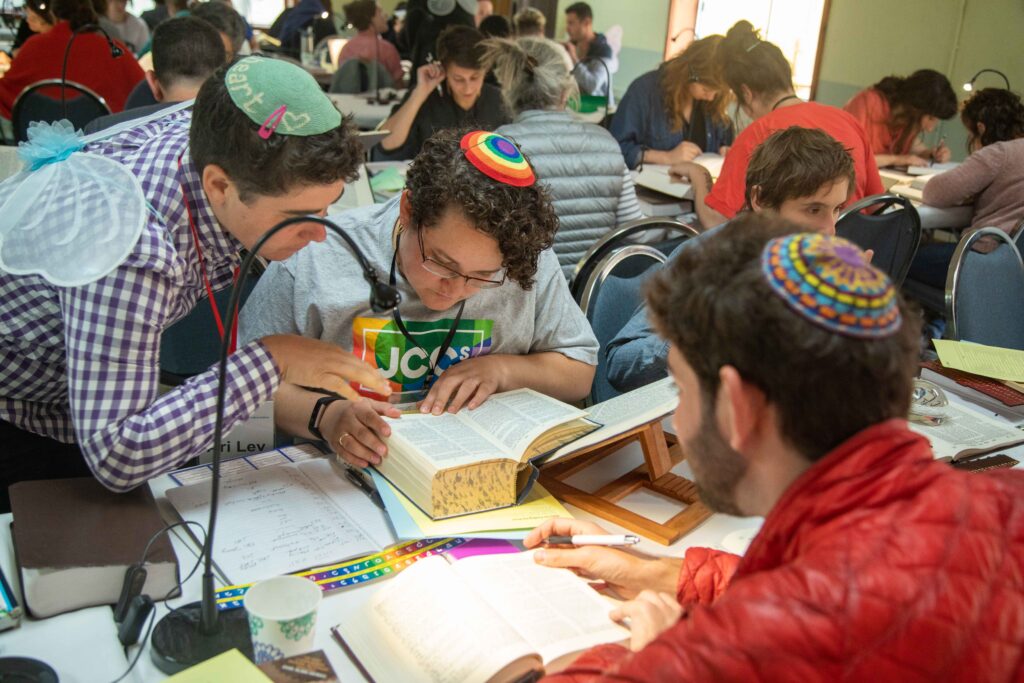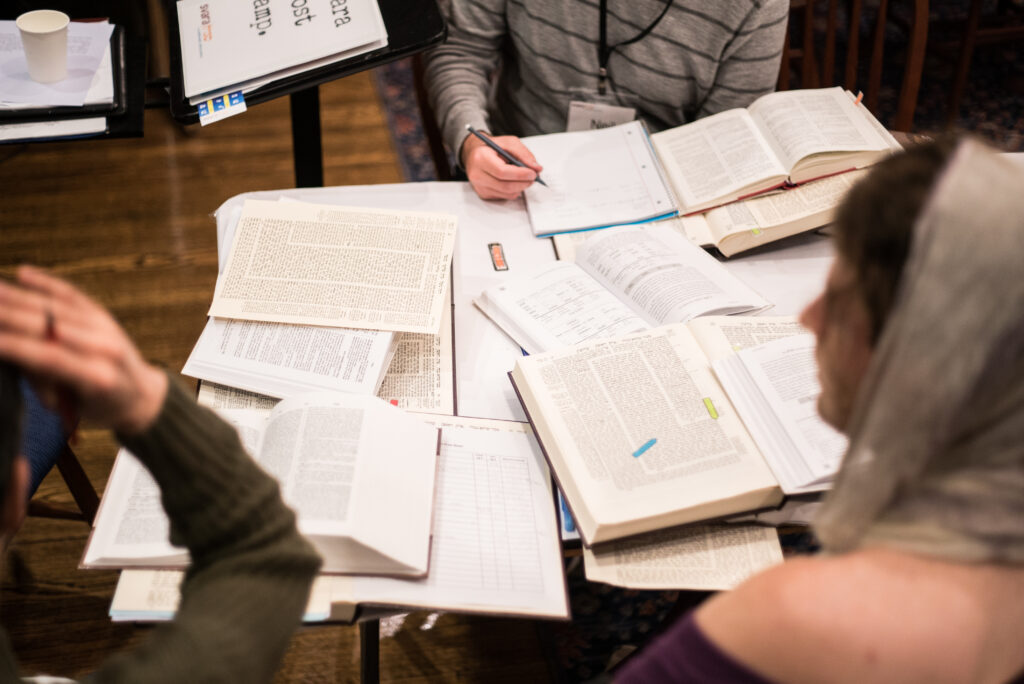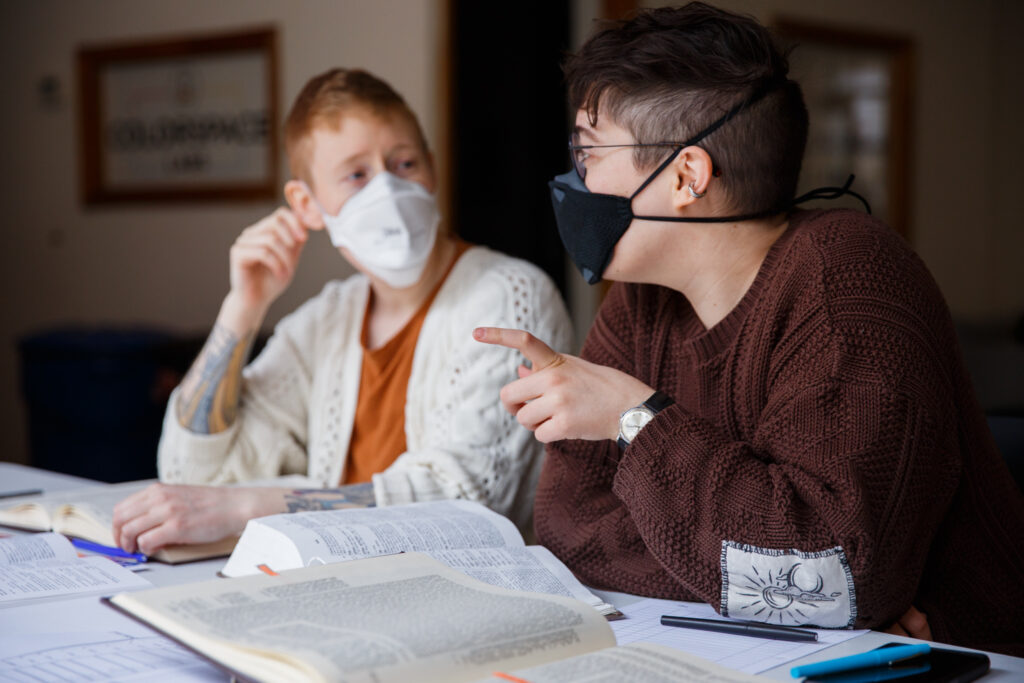One of my earliest memories from my time at Gann Academy, a pluralistic Jewish high school where I taught before attending rabbinical school, is sitting on the floor singing with 20 high school students. This Friday morning chug / activity was meant to serve as a preparation for Shabbat. We had a set of songs and most weeks we would move through them and still have time for one or two more. I remember how impressed I was that the majority of the group knew the words to a song that I have since learned is both a popular song and the first line of this week’s haftarah. It begins:
נַחֲמ֥וּ נַחֲמ֖וּ עַמִּ֑י יֹאמַ֖ר אֱלֹֽהֵיכֶֽם
Comfort, comfort, my people, says your Gd.
(Isaiah 40:1)
This Shabbat is the first one following Tisha B’Av, beginning the seven weeks of consolation between Tisha B’Av and Rosh Hashanah. Tisha B’Av is the day in our communal calendar where we mourn moments in our communal history. While the specific crashes that our rabbinic tradition assigns to Tisha B’Av do not resonate for me, I am certainly still mourning. Climate collapse, transphobia, and a grief that comes with parenting that I have not yet fully articulated are all sitting in my heart, my hunched shoulders, and the tears that come more easily than I would like. And so, what does resonate is the need to name and sit with our sadness and our grief.
Yesterday, my teacher, Rabbi Micha’el Rosenberg shared the following on Facebook: “Tisha b’Av ends and we are still in the midst of our mourning. The Temple is still burning, so how could we not be still in the depths… There is no hope coming out of Tisha b’Av; just more sadness.”
Working with the “more sadness” that we are left with is a central task of the next seven weeks, each of which are highlighted by the haftarah. We are provided a full cycle of seven—like the days of the week or weeks of the omer—to do this work before Rosh Hashanah. And given the proximity to Rosh Hashanah, we can see this work as critical preparation for the Yamim Nora’im / Days of Awe; that what we are working towards is the inner and communal capacity to celebrate the potential of the new year.
What might this work look like? How can we sit with ourselves and each other in grief? What paradigms does our tradition offer us?
One clear paradigm is that of personal mourning. The Talmud (Sotah 14a) teaches that our obligation to comfort the mourner is one aspect of what it means to walk in Gd’s ways:
וְאָמַר רַבִּי חָמָא בְּרַבִּי חֲנִינָא מַאי דִּכְתִיב אַחֲרֵי ה׳ אֱלֹהֵיכֶם תֵּלֵכוּ
Rabbi Hama son of Hanina said: What does the Torah mean when it says “you should walk after YHVH your Gd?”
וְכִי אֶפְשָׁר לוֹ לְאָדָם לְהַלֵּךְ אַחַר שְׁכִינָה וַהֲלֹא כְּבָר נֶאֱמַר כִּי ה׳ אֱלֹהֶיךָ אֵשׁ אוֹכְלָה הוּא אֶלָּא לְהַלֵּךְ אַחַר מִדּוֹתָיו שֶׁל הַקָּדוֹשׁ בָּרוּךְ הוּא…
Is it possible for a person to walk behind the Shekhina? Hasn’t it already been stated “For YHWH your God—he is a consuming fire, a zealous God!” Rather this verse means to walk after (to follow) the attributes of the Holy One, Blessed be Gd.
הַקָּדוֹשׁ בָּרוּךְ הוּא נִיחֵם אֲבֵלִים דִּכְתִיב וַיְהִי אַחֲרֵי מוֹת אַבְרָהָם וַיְבָרֶךְ אֱלֹהִים אֶת יִצְחָק בְּנוֹ אַף אַתָּה נַחֵם אֲבֵלִים
The Holy One consoles mourners, as it is written, “And it came to pass after the death of Abraham, that God blessed Isaac his son” (Genesis 25:11), so too, should you console mourners.
I love at least two things about this text. The first is that it puts us in the position of aspiration. Recently, a friend’s father passed away. His facebook post was filled with responses that echoed the words we might say to a mourner, המקום ינחם אתכם / May Gd comfort you and מן השמים תנוחמו / May you be comforted from the heavens. Perhaps complete consolation is in the hands of the divine, but we can still emulate Gd’s ways and offer partial consolation. I find immense relief in this.
The second is that consoling a mourner is tied to blessing. The prooftext doesn’t say that Gd consoles Isaac! It says that he blesses him. Rashi offers two possibilities for this blessing. The first is that Gd offered him words of consolation. The second is that Abraham had never blessed his son, so Gd steps in to do so. While Rashi isn’t clear, I imagine that blessing to be the Priestly Blessing that many parents bless their children with weekly. Both suggestions reflect the idea that a blessing elevates a moment by attaching it to the holiness that runs through each of us and this world.
There is some tension in adapting the paradigm of an individual mourning individuals who have died to mourning communal crash points and societal collapses. Tisha B’Av does not perfectly mirror a funeral, just as the seven weeks of consolation do not exactly mirror a week of shiva. Despite this, we can and should still learn from the concrete ways our tradition approaches death.
The binary of mourner and comforter falls apart in both death and in other moments of mourning. Instead, our role in this moment is to offer comfort to each other and ourselves. Our goal is not to achieve complete consolation: that is unreachable. Instead our goal is to realize that comfort and consolation may come from connecting our grief to the holiness that animates, and emanates from, each of us and that will carry us forward into new potential.







